Publications
Articles, publications, books, tools and multimedia features from the U.S. Institute of Peace provide the latest news, analysis, research findings, practitioner guides and reports, all related to the conflict zones and issues that are at the center of the Institute’s work to prevent and reduce violent conflict.
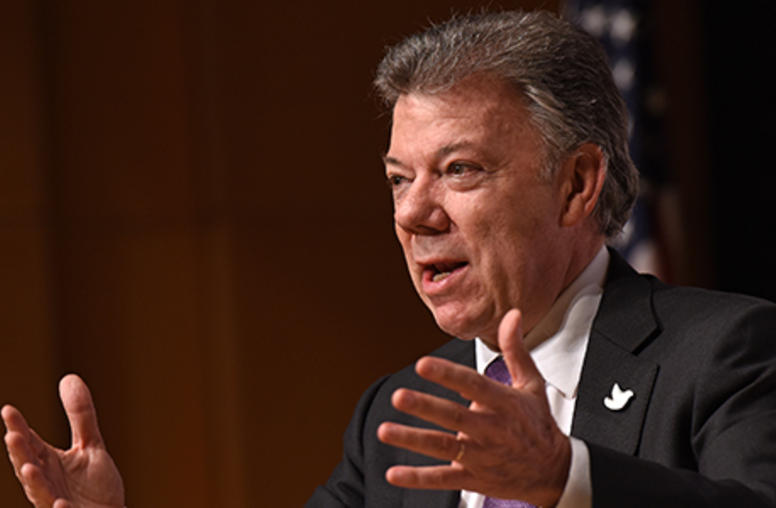
Colombian President Says 51-Year War May End Next Month
Colombian President Juan Manuel Santos said his government and the country’s biggest guerrilla group likely will be able to sign a final peace accord close to their self-imposed deadline of March 23, ending more than half a century of internal conflict. Speaking today in Washington at an event co-hosted by the U.S. Institute of Peace, Santos said his government will return to the ongoing negotiations in Havana with new procedures aimed at expediting the final phase.
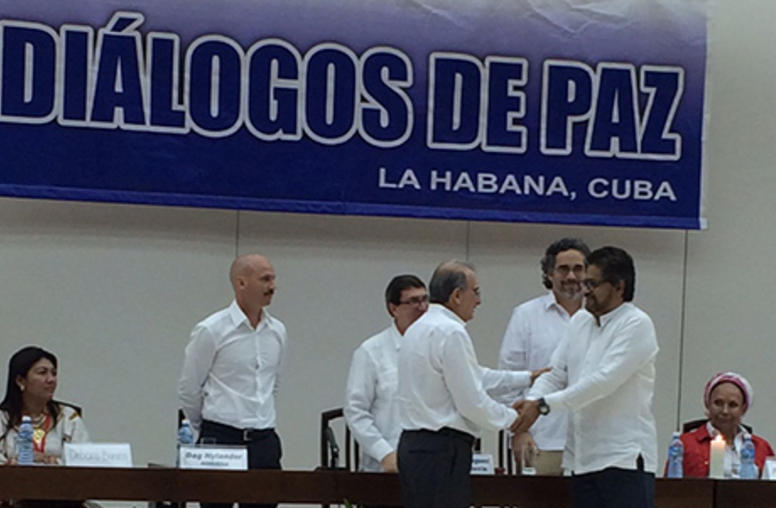
Q&A: Colombia Cease-Fire Accord Marks Historic Turn
More than a half-century of internal warfare in Colombia is on the brink of a peaceful resolution after four years of talks that suggest how other seemingly intractable conflicts in the world also might be brought to an end. With the announcement yesterday of a ceasefire between the government and the Revolutionary Armed Forces of Colombia (FARC-EP), the adversaries in one of the world’s oldest guerilla insurgencies disclosed new agreements on the two major issues that were holding up a final...

Q&A: Colombia Peace Deal Announced — What’s Next?
After 52 years of armed conflict, the Colombian government and the country’s oldest rebel group, the Revolutionary Armed Forces of Colombia (FARC-EP), announced a final agreement last night aimed at ending one of the world’s longest-lasting insurgencies. The U.S. Institute of Peace’s Virginia M. “Ginny” Bouvier, who has studied the peace process from the outset and advised Colombian government officials, civil society and others promoting a political solution to the conflict, comments on the ...
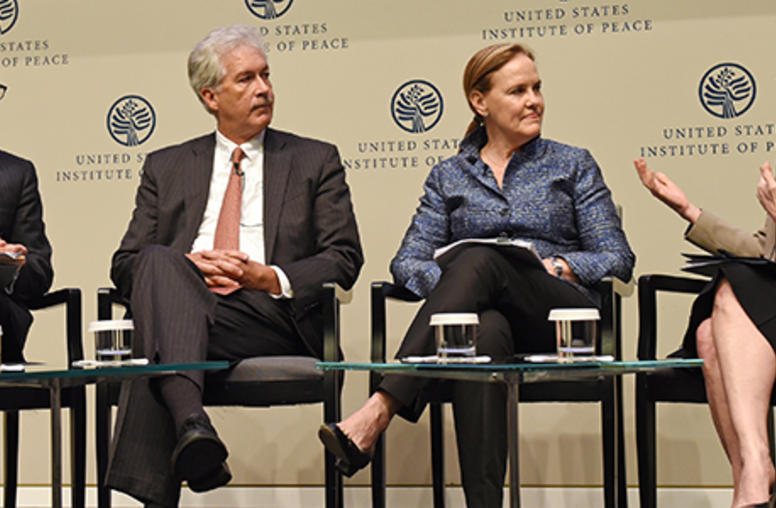
Burns, Flournoy, Lindborg Press Urgency of Fragile States
Three former high-ranking officials in the State Department, the Pentagon and the U.S. Agency for International Development (USAID) urged the next presidential administration to commit more attention and resources to preventing the kinds of violent conflicts that are roiling the Middle East and other regions today and spilling over into neighboring countries, Europe and the United States. Former Deputy Secretary of State Bill Burns, Under Secretary of Defense Michele Flournoy and USAID Assist...

Q&A: Colombians Narrowly Reject Peace Deal
Colombian voters yesterday defied projections by pollsters and rejected a peace accord that their government had negotiated during four years of talks with the Revolutionary Armed Forces of Colombia (FARC-EP). The agreement was intended to end more than a half century of violent conflict that has left well over 220,000 dead and close to 8 million victims, including more than 6 million people forcibly displaced. USIP’s Senior Advisor for Peace Processes Virginia M. Bouvier explains why voters ...
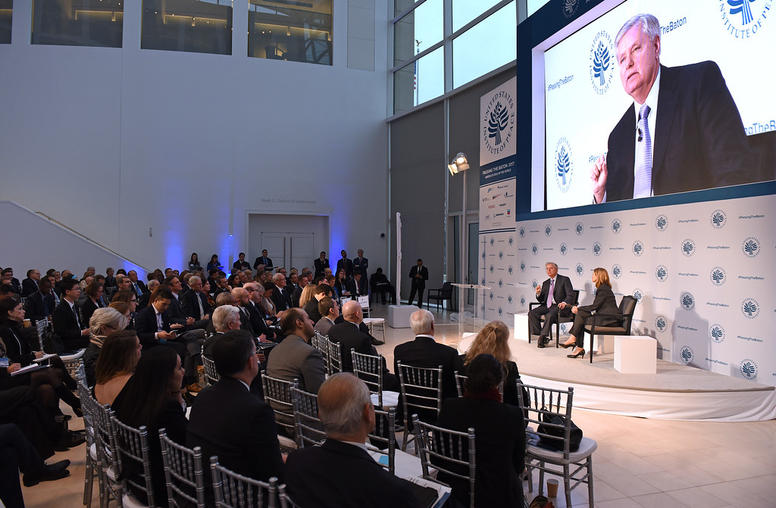
U.S. National Security Chiefs Talk Leadership, Partners
The national security advisors to President Barack Obama and President-elect Donald Trump stood shoulder-to-shoulder on a stage at the U.S. Institute of Peace yesterday and shook hands to a standing ovation at a two-day conference on foreign and national security policy. In speeches, National Security Advisor Susan Rice and her designated successor, retired U.S. Army Lieutenant General Michael Flynn, struck a tone of cooperation on the transition between administrations.
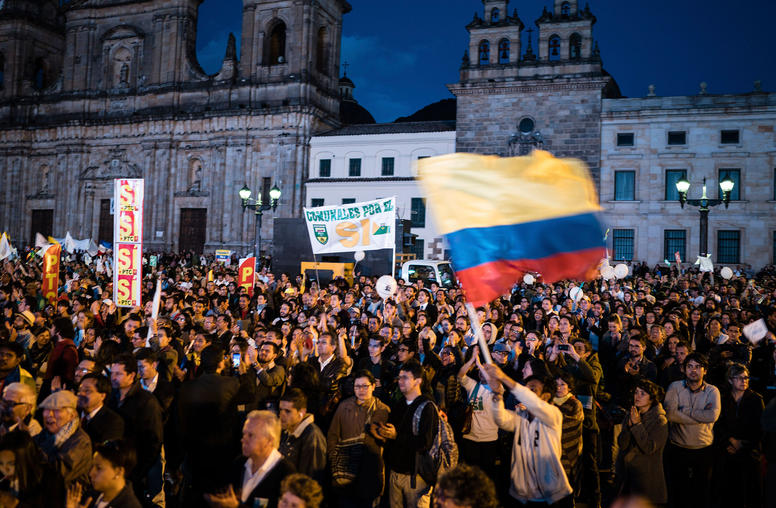
Standing by Colombia for Peace, as in War
When Colombian President Juan Manuel Santos accepts his Nobel Peace Prize this week in Oslo for pursuing an end to a half century of conflict, Americans can take a measure of pride.
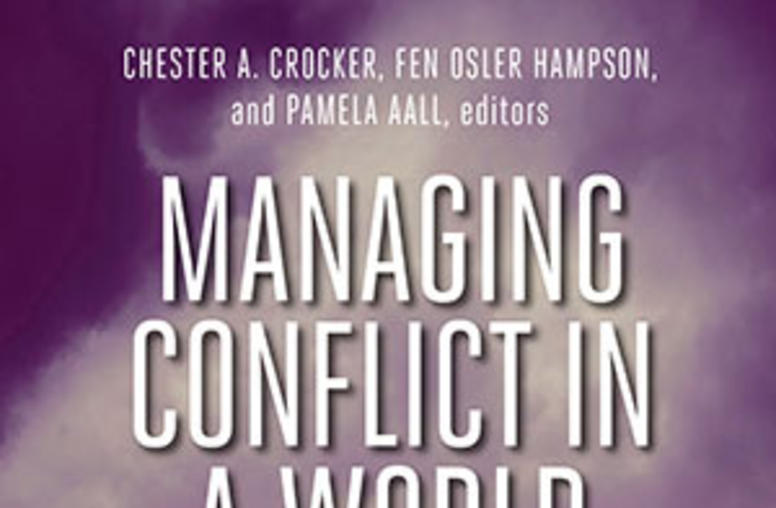
Managing Conflict in a World Adrift
In the midst of a political shift where power is moving from central institutions to smaller, more distributed units in the international system, the approaches to and methodologies for peacemaking are changing. "Managing Conflict in a World Adrift" provides a sobering panorama of contemporary conflict, along with innovative thinking about how to respond now that new forces and dynamics are at play.

China-Colombia Relations are Growing, if Slowly
Colombian President Gustavo Petro’s visit to Beijing in October amounted to a notable — if quite small — step forward for China and Colombia, building on growing trade and other ties, while also laying the groundwork for cooperation on issues, such as media and security, which China has promoted across the region.
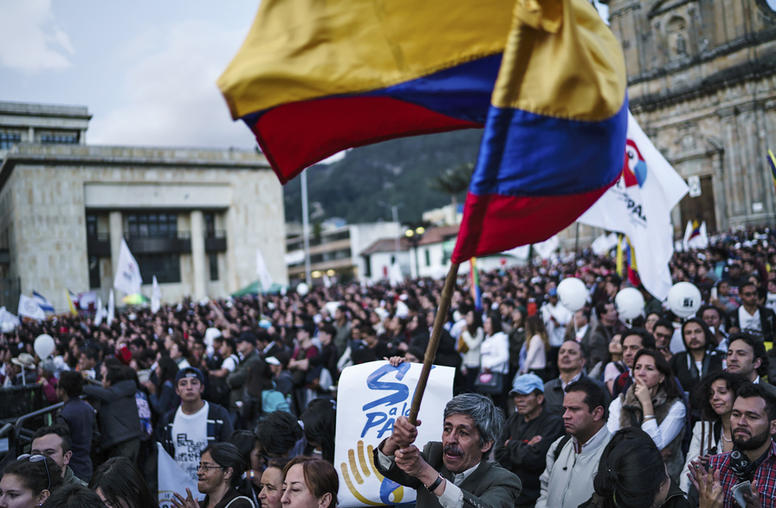
Measuring Collective Impact: Creating a Framework for Assessing Multiple Peacebuilding Projects in Colombia
USIP implemented its Initiative to Measure Peace and Conflict (IMPACT) program first in the Central African Republic and later in Colombia, where it worked directly with peacebuilding organizations to gauge their collective impact on fostering reconciliation in the wake of the 2016 peace accord between the government and FARC rebels. Drawing on the challenges encountered and lessons learned, this report provides suggestions for how future iterations of the IMPACT approach can help policymakers, donors, and practitioners achieve greater and more cost-effective results from the peacebuilding projects they support.